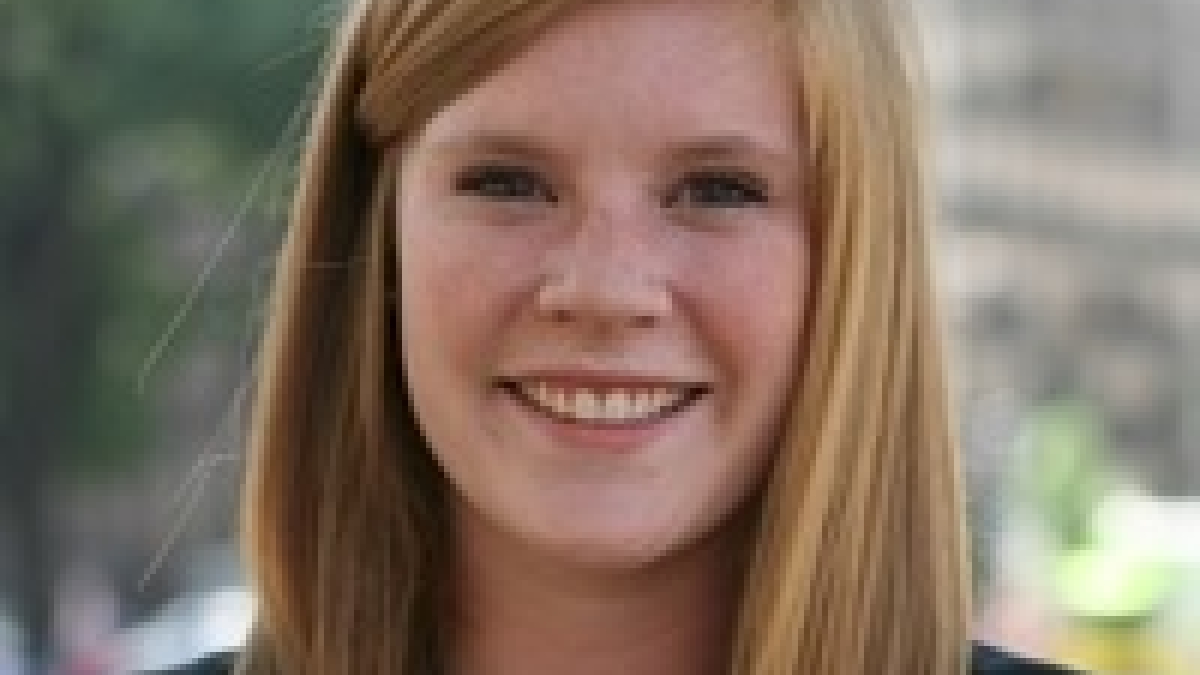Journalism alum wins prestigious business reporting award

Less than a year after graduating, an alumnus of the Walter Cronkite School of Journalism and Mass Communication at Arizona State University is part of a reporting team that has won the prestigious George Polk Award for Business Reporting.
Lauren Kyger, a 2013 Cronkite School graduate, was named along with Alison Fitzgerald, Daniel Wagner and John Dunbar of the Center for Public Integrity, a nonpartisan, nonprofit investigative news organization based in Washington, D.C.
The award honors the team’s expose, “After the Meltdown,” which examined the failure of regulators to hold major Wall Street players accountable for the reckless behavior that ignited an economic recession. The series probed the role of subprime lenders, banks and government regulators responsible for the crash five years after the fact.
Kyger interned at the center following her graduation last May and helped research and write stories on former Bear Stearns mortgage executives and government regulators such as Christopher Cox, the former chairman of the Securities and Exchange Commission.
“The internship was an incredible experience and I am proud to have worked on such an impactful series,” Kyger said. “This is an award that Walter Cronkite won at one point in his career, and to be mentioned in the same breath means more than words can describe.”
Kyger was among the 30 recipients from 15 news organizations to receive a 2013 Polk Award, which will be presented in New York on April 11. This fall, she will begin a two-year master’s program in global business journalism at Tsinghua University in Beijing through the Hinrich Global Trade China Fellowship Program.
"As an excellent Cronkite business journalism student, Lauren continually tackled major business and international issues," said Reynolds Chair Andrew Leckey, a Fulbright Scholar teaching in China this semester. "Achieving this Polk Award as an intern and her upcoming fellowship in China dramatize the remarkable career trajectory of this talented young journalist."
Steve Doig, Knight Chair in Journalism at the Cronkite School, won a 2011 George Polk Award for his work with California Watch, a nonprofit investigative journalism organization. Doig and his California Watch colleagues Christina Jewett and Lance Williams were honored for a yearlong series of articles that exposed a pattern of suspicious Medicare billing at Prime Healthcare Services, a California-based hospital chain.
Established in 1949, the George Polk Awards are given each year by Long Island University to honor special achievements in journalism. The awards place a premium on investigative and enterprise reporting that gains attention and achieves results. The Polk Awards commemorate George Polk, a CBS correspondent murdered in 1948 while covering the Greek Civil War.
The Center for Public Integrity is one of the country’s oldest and largest nonpartisan, nonprofit investigative news organizations. Established in 1989, it was founded to serve democracy by revealing abuses of power, corruption and betrayal of public trust by powerful public and private institutions.